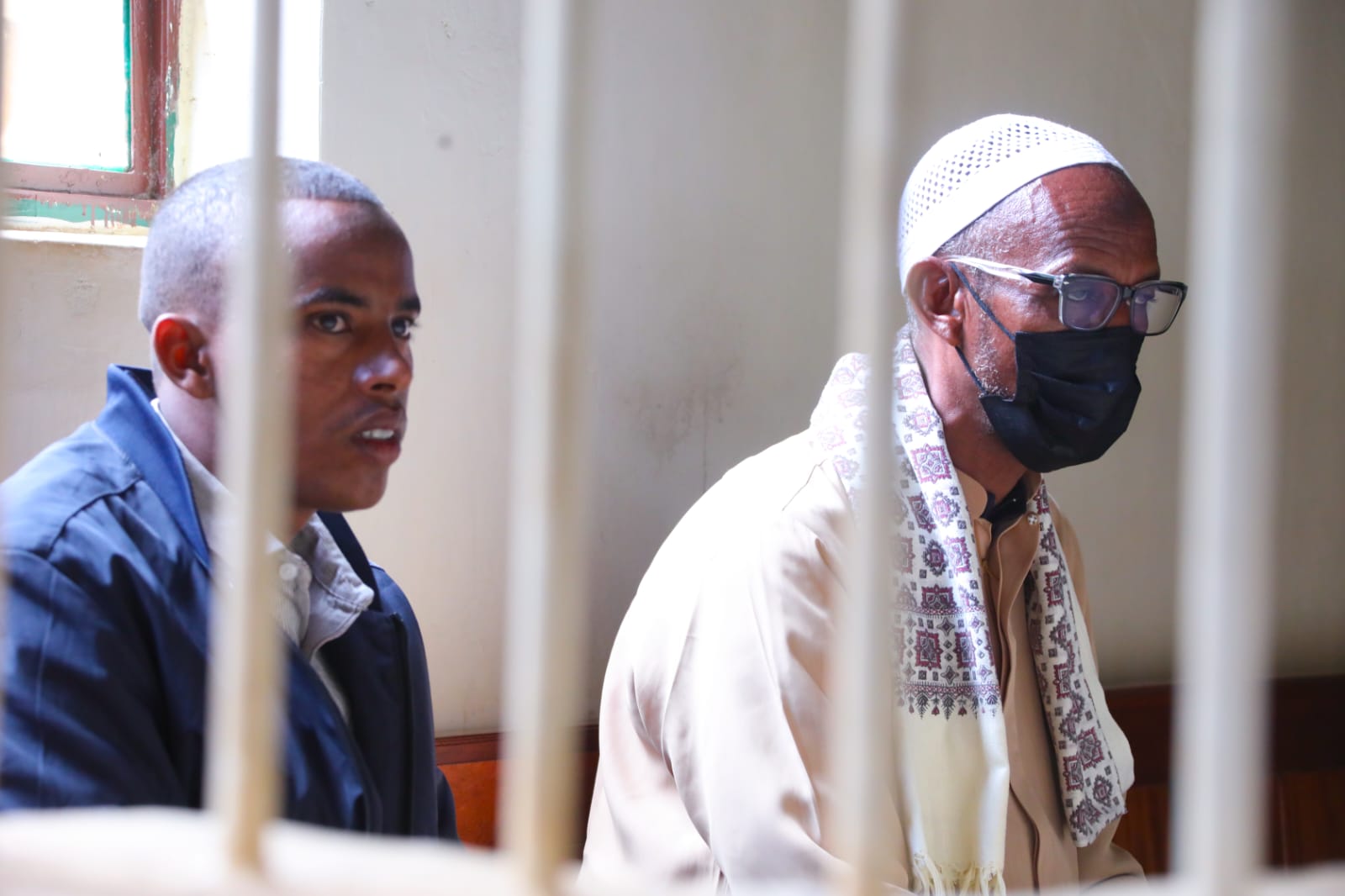News
Two Dusit D2 Terrorists Convicted
The ODPP has since requested the maximum penalty for the convicts, advocating for consecutive rather than concurrent sentences.

Two men were on Thursday convicted for their roles in the January 15, 2019, terrorist attack at the Dusit D2 Hotel Complex in Nairobi.
The attack, which claimed 21 lives and left several others with life-threatening injuries, shocked the nation and underscored the persistent threat posed by Al-Shabaab militants in the region.
In a ruling delivered today at the Kahawa Law Courts, Lady Justice Diana Kavedza found Hussein Mohamed Abdille Ali and Mohamed Abdi Ali guilty on multiple charges related to the attack.
The court determined that the prosecution had proven its case beyond reasonable doubt, convicting the two men of conspiring to commit a terrorist act that resulted in the deaths at the luxury hotel and business complex in Nairobi’s Westlands area.
Hussein Mohamed Abdille Ali was additionally convicted of facilitating a terrorist act under Section 9A of the Prevention of Terrorism Act.
Meanwhile, Mohamed Abdi Ali faced convictions on 14 additional counts, including facilitating the attack by transferring a total of Sh836,900 through mobile money to Ali Salim Gichunge, a deceased Al-Shabaab operative also known as Farouk or Erick Kinyanjui Munyi.
These transactions, which took place between October 14, 2018, and January 12, 2019, in the Soko Mbuzi area of Mandera County, were pivotal in enabling the deadly assault.
The prosecution, led by Assistant Director of Public Prosecutions Duncan Ondimu, alongside Principal Prosecution Counsels James Machira and Kennedy Amwayi, presented 45 witnesses whose testimonies were instrumental in securing the convictions.
The trial also saw a third accused, Mire Abdulahi, enter a plea bargain earlier in the process, leading to his conviction and sentencing.
During the proceedings, the court heard how the Dusit D2 attack was part of a broader pattern of Al-Shabaab operations in Kenya, a country that has been a target of the Somalia-based militant group since its military intervention in Somalia in 2011.
The attack, which unfolded over several hours, saw militants storm the hotel compound, forcing hundreds of civilians to flee amid sporadic gunfire and explosions.
The siege was a grim reminder of the 2013 Westgate Mall attack in Nairobi, which also targeted civilians and claimed dozens of lives.
In her ruling, Lady Justice Kavedza acquitted the two men on one charge (count two) but upheld the remaining counts, emphasising the strength of the evidence presented by the prosecution.
The ODPP has since requested the maximum penalty for the convicts, advocating for consecutive rather than concurrent sentences.
They also called for the cancellation of bail for Mohamed Abdi Ali, a request that was granted by the court.
Ali was remanded to Kamiti Maximum Security Prison, where he will remain until the sentencing hearing scheduled for June 19, 2025.
The court has ordered a probation report to be prepared within 21 days, due by June 17, 2025, to assist in determining the appropriate sentencing.
The ODPP’s push for harsh penalties reflects Kenya’s broader efforts to combat terrorism and dismantle the financial and logistical networks that sustain groups like Al-Shabaab.
According to a 2019 report by the Organised Crime and Corruption Reporting Project, Al-Shabaab generates significant revenue—estimated at Sh700 million annually—through activities like charcoal smuggling in the Middle East, funds that are often funneled into attacks like the one at Dusit D2.
The conviction has been hailed as a significant step toward justice for the victims of the Dusit D2 attack.
“This ruling sends a strong message that Kenya will not relent in its pursuit of justice for those who perpetrate or enable acts of terror,” said a statement from the ODPP.
As the nation awaits the sentencing in June, the case continues to highlight the challenges of addressing terrorism in East Africa, where Al-Shabaab remains a potent threat despite years of counter-terrorism efforts by Kenyan authorities and international partners.
For the families of the 21 victims, today’s verdict offers a measure of closure, though the scars of that fateful day in 2019 remain.
Kenya Insights allows guest blogging, if you want to be published on Kenya’s most authoritative and accurate blog, have an expose, news TIPS, story angles, human interest stories, drop us an email on [email protected] or via Telegram
-

 Business4 days ago
Business4 days agoCooking Fuel Firm Koko Collapses After Govt Blocks Sh23bn Carbon Deal
-

 Business3 days ago
Business3 days agoABSA BANK IN CRISIS: How Internal Rot and Client Betrayals Have Exposed Kenya’s Banking Giant
-

 Politics2 weeks ago
Politics2 weeks agoYour Excellency! How Ida’s New Job Title From Ruto’s Envoy Job Is Likely to Impact Luo Politics Post Raila
-

 Business2 weeks ago
Business2 weeks agoMinnesota Fraud, Rice Saga, Medical Equipment Deal: Why BBS Mall Owner Abdiweli Hassan is Becoming The Face of Controversial Somali Businessman in Nairobi
-

 News2 weeks ago
News2 weeks agoKenya Stares At Health Catastrophe As US Abandons WHO, Threatens Billions In Disease Fighting Programmes
-

 Americas3 days ago
Americas3 days agoEpstein Files: Bill Clinton and George Bush Accused Of Raping A Boy In A Yacht Of ‘Ritualistic Sacrifice’
-

 Politics2 weeks ago
Politics2 weeks agoJaramogi Clan Tells Raila Jr, Winnie Against Disrespecting Their Uncle Oburu, Warns of Curses
-

 News2 weeks ago
News2 weeks agoDCI Probes Meridian Equator Hospital After Botched Procedure That Killed a Lawyer



















